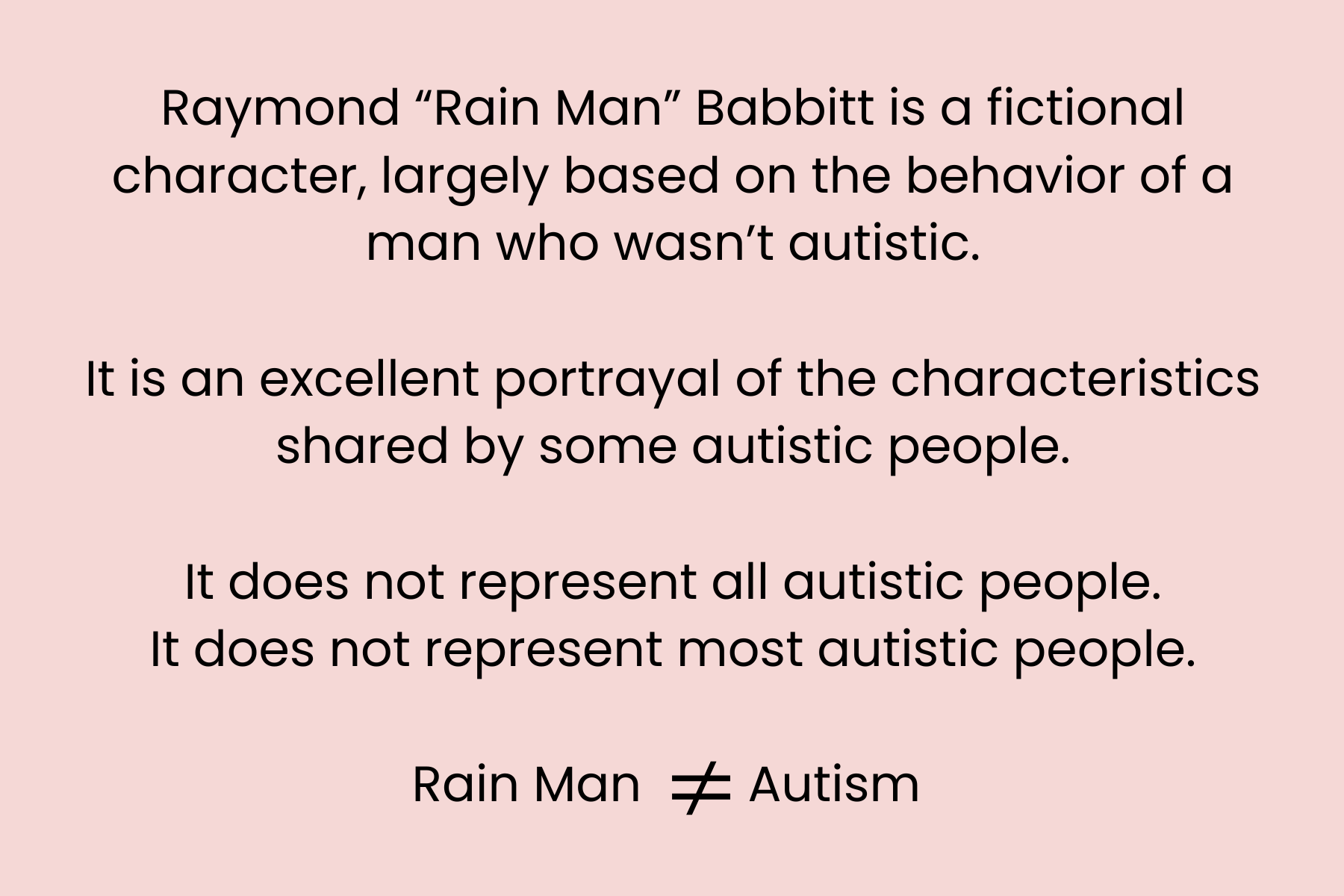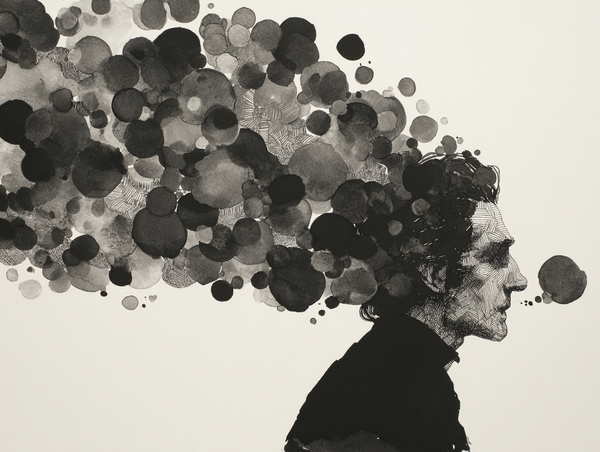Rain Man Revisited
A personal reflection on autism, Hollywood stereotypes, and the deeper message behind Neurodiversity Celebration Week. This piece challenges the "usefulness" narrative and calls for a more human-centered view of neurodivergent people, one rooted in dignity, not productivity.

Thoughts on Neurodiversity Celebration Week, Part 2
Author’s note: This was the second article that I wrote in which I discussed autism. I didn’t share the fact that I am autistic, although I suppose it’s probably there between the lines. I never was very good at reading between the lines.
I have a love-hate relationship with the movie Rain Man. It was released in 1988 and tells the story of an autistic man and his manipulative brother. I love the movie because it is a nuanced portrayal of an autistic person. Dustin Hoffman’s “Raymond” is likeable, sympathetic, and well-rounded. He’s not an afterthought or a plot device. He’s a main character. Hoffman spent a lot of time with a handful of autistic people, and he provides a very accurate portrayal of one form of autism.
But that brings us to the hate. Rain Man was the highest-grossing film of 1988. It cost $25 million to make, but it had a gross profit somewhere around $400 million. It was nominated for 8 Academy Awards and won 4.
Somehow, in an industry that thrives on remakes, sequels, and rip-offs, nobody else made a movie with a sympathetic autistic main character. Nobody offered up even a minor character who displayed some other aspects of autism. To the world, autism and Rain Man were synonymous.
There was a time in my late 20s when I wondered if I might be autistic. But Rain Man was autistic, and I wasn’t Rain Man, so I couldn’t be autistic. Case closed. And it would be another 20+ years before I would consider autism again.
I don’t blame the movie or Dustin Hoffman or anyone else. I should have done some actual research instead of basing my decision on my recollection of a movie I had seen years before. But the belief that “autism = Rain Man” is still very much alive today, and it hinders meaningful communication.
Hollywood loves the stereotypical “autistic savant.” The (almost always) white (almost always) male who can’t make eye contact and stumbles as far as he can through any social interaction before becoming unresponsive, screaming, and rocking back and forth. But our Hollywood Autistic Savant has a secret. He has some form of superpower that the story’s main characters can exploit.
The patron saint of Hollywood Autistic Savants is Dustin Hoffman’s character Raymond from the movie Rain Man. Which is ironic for any number of reasons. The biggest of which is the fact that the character of Raymond was based on a man named Kim Peek. And Kim Peek wasn’t autistic. He had FG syndrome. (See the links in the comments below.)
But when has Hollywood ever let the truth get in the way of a good story?
The key to the Hollywood Autistic Savant is that he is annoying, but useful. His “quirks” can be tolerated so long as he continues to provide value. In Rain Man, Tom Cruise’s character Charlie doesn’t even know that his brother Raymond exists until their father dies and leaves all his money to Raymond. Charlie kidnaps Raymond to use him as a pawn to get what he sees as his share of their father’s estate. When Charlie realizes that Raymond is a math prodigy, he takes Raymond to Las Vegas so that Charlie can win money playing blackjack. Yes, yes. There’s the big happy Hollywood ending and everyone learns a valuable lesson. Not the point.
To Charlie, Raymond is a source of revenue. If Raymond couldn’t provide Charlie with money, Charlie would never have spoken a word to Raymond. If he isn’t useful, then there is no reason to acknowledge his existence.
Which brings us to Neurodiversity Celebration Week. While I’m generally supportive of the idea, too much of the message seems to boil down to “Hey, companies! Hire neurodivergent people! They’re useful!” And I understand that companies exist to generate profit. They don’t hire anyone unless they believe that the person will be a net asset. I understand that if you want to talk to a corporation, you have to speak the only language that they can hear. Which is money.
And I understand the benefits that a marginalized person can obtain from having responsibilities and an income. I'm not saying "Don't hire neurodivergent people."
But allow me to propose an alternative to “Hey, companies! Hire neurodivergent people! They’re useful!” My first draft is “Hey everyone! Neurodivergent people are people!” Or maybe “Hey everyone! A neurodivergent person’s value as a human being isn’t dependent on what they can do for you or if you are comfortable around them or how well they conform to your definition of functioning!” Granted, it’s a little too wordy to fit on a bumper sticker or a T-shirt





